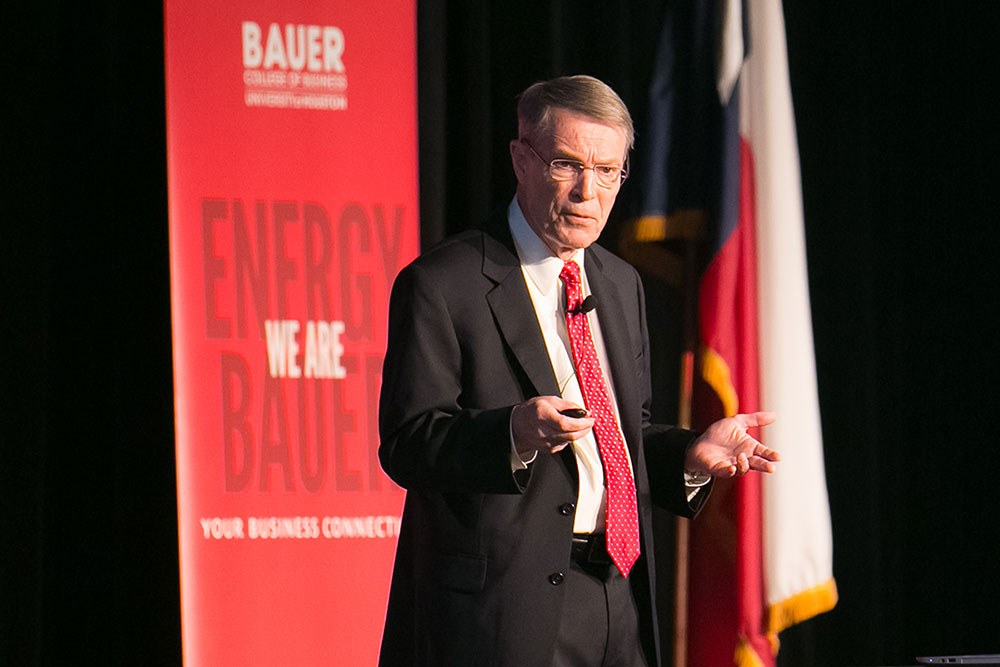Institute for Regional Forecasting Director Shares Insights on State of Houston’s Economy
Published on June 4, 2018

Economist Robert W. “Bill” Gilmer speaks at the C. T. Bauer College of Business Institute for Regional Forecasting Spring Economic Symposium.
Economist Robert W. “Bill” Gilmer shared insights on the state of the Houston economy during the C. T. Bauer College of Business Institute for Regional Forecasting Spring Economic Symposium.
Amid comments about improving oil markets and optimism about Houston’s economic outlook, Gilmer expressed a need for urgency in addressing flooding infrastructure improvements as soon as possible following damage from Hurricane Harvey less than a year ago.
“The storm exposed major shortfalls in our flood control infrastructure and management, and how we respond will determine future reputational risks for business relocation into the region, home values, and metro-wide developmental patterns,” he said.
“It is essential that we have adequate storm infrastructure, and not ignore warnings from Ike and Harvey. New Orleans, Puerto Rico, Galveston, and Indianola all ignored warnings that their flood control and other infrastructure was inadequate. If you don’t take care of infrastructure you can have big damage to the economy.”
That said, Gilmer reported that Harvey’s effect on home sales was negligible, while its effect on the number of available listings was significant. “A fall in listings reduced inventory, partly due to fear of the price consequences of recent flood damage,” he said.
Gilmer predicts the existing home market will begin loosening up again.
“New home inventories remain as the safety valve for the housing market and must remain strong.”
Gilmer, who serves as IRF director, addressed an audience of approximately 700 business professionals May 17 with a forecast titled, "Houston's Economic Outlook Caught Between Improving Oil Markets and Growing Risks to U.S. Growth."